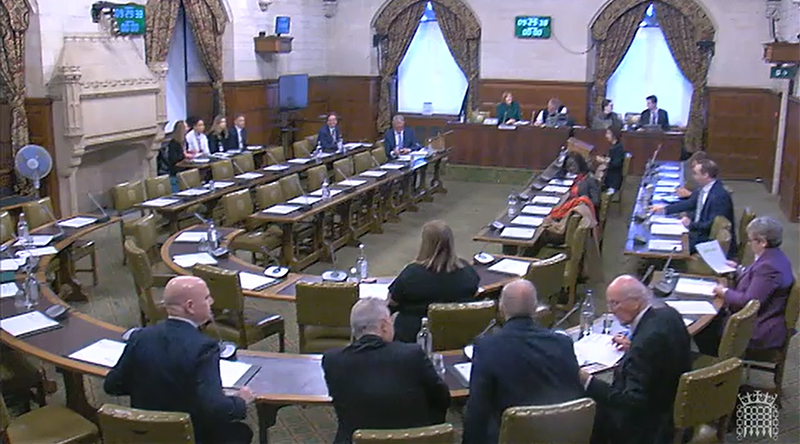
MPs divided over banning conversion therapy
On Wednesday, MPs debated the UK Government’s policy on conversion practices in a Westminster Hall event, led by Labour MP Christian Wakeford.
Westminster Hall debates provide no formal legislative platform, but give MPs an opportunity to raise issues and receive a response from a Government Minister.
Nearly half of the 14 MPs in attendance opposed calls to ban conversion therapy, speaking in defence of parents, children and churches.
SNP MP Joanna Cherry argued: “What those campaigning for a ban often call ‘conversion therapy’ is in fact legitimate protection of the time and space for a child to reconsider the conviction that they were born in the wrong body, so they can be stopped from going down a pathway of hormones and surgery, which sterilises them and can leave them with no adult sexual function.”
DUP MP Jim Shannon, commenting on the damage a ban could have on churches, said: “Such a ban could lead to limitations on the ability of children and youth to maintain informal or formal religious groups, such as prayer groups, which are used to promote spirituality and repentance in the Christian context.”
He also warned that a conversion therapy Bill threatens to criminalise parents who discourage their children from going on puberty blockers.
The MP for Strangford said: “It is a transformative medical practice, into which parents of children and youth surely ought to have an input.”
He added: “I fear that a conversion therapy ban could leave well-meaning, responsible parents vulnerable to unfair legal measures and social retaliation.”
Alba MP Neale Hanvey remarked: “Legislation is supposed to fix a problem, not create a new one, and where evidence of conversion practices exist, they will not be mitigated but exacerbated by such proposals.”
Conservative MP Sir John Hayes commented: “Exploring desire is a journey that we all travel. Being guided, counselled and advised sometimes helps us to navigate our way on that difficult journey. Prohibiting guidance, in my judgment, is a short step from a ban on friendship”.
He added: “Could we, in conscience, really want to make consensual, quiet conversations illegal? No one in this Chamber and no one who contributes to this debate wants cruel, inhumane and spiteful interventions in people’s particular and very different lives. Surely, we cannot ban the freedom to speak, to put our case, and to converse.”
Junior Equalities Minister Stuart Andrew, responding for the Government, said that a conversion therapy Bill must not prevent parents, teachers, counsellors and religious leaders from having challenging conversations with young people. However, he gave no detail on how he intends to protect such conversations.
He reiterated his promise to do everything he can to ensure the Government’s draft Bill is published “as soon as possible”.
Those who spoke in favour of a Bill gave little detail about exactly what they want to ban, and precisely how they intend to ban it.
Stark warnings about how a broad conversion therapy Bill would impinge on faith settings and families were ignored and met with vague generalities and unsubstantiated claims that “conversion therapy is abhorrent and evil” and “just needs banning”.
Wakeford, the MP for Bury South, opened the debate with two stories of individuals who have experienced so-called conversion therapy. These kinds of emotive stories have formed the basis for the Ban Conversion Therapy campaign, which lists 10 different stories on its website.
But an X thread shared yesterday sought to unravel a number of these stories.
Richard Dunstan wrote: “The Ban Conversion Therapy campaign’s website sets out 10 individual stories. In some of these cases, the alleged CT happened decades ago. In others, it is far from clear how a ban would have prevented the alleged CT. And in the case of ‘Maya’ the CT happened in Israel.”
Wednesday also saw the introduction of a Private Member’s Bill in the House of Commons on conversion therapy. The Bill, put forward by Labour MP Lloyd Russell-Moyle, will be debated in March.
That means there are now two Private Members’ Bills on conversion therapy in Westminster. Baroness Burt’s Bill in the House of Lords is likely to be debated in January.
New Irish Govt Programme, same ‘conversion therapy’ promise
2026-01-30 09:42:59The Traitors and the misguided conversion therapy debate
2026-01-23 15:07:47The Traitors and the campaign to ban ‘conversion therapy’
2026-01-16 07:47:52
